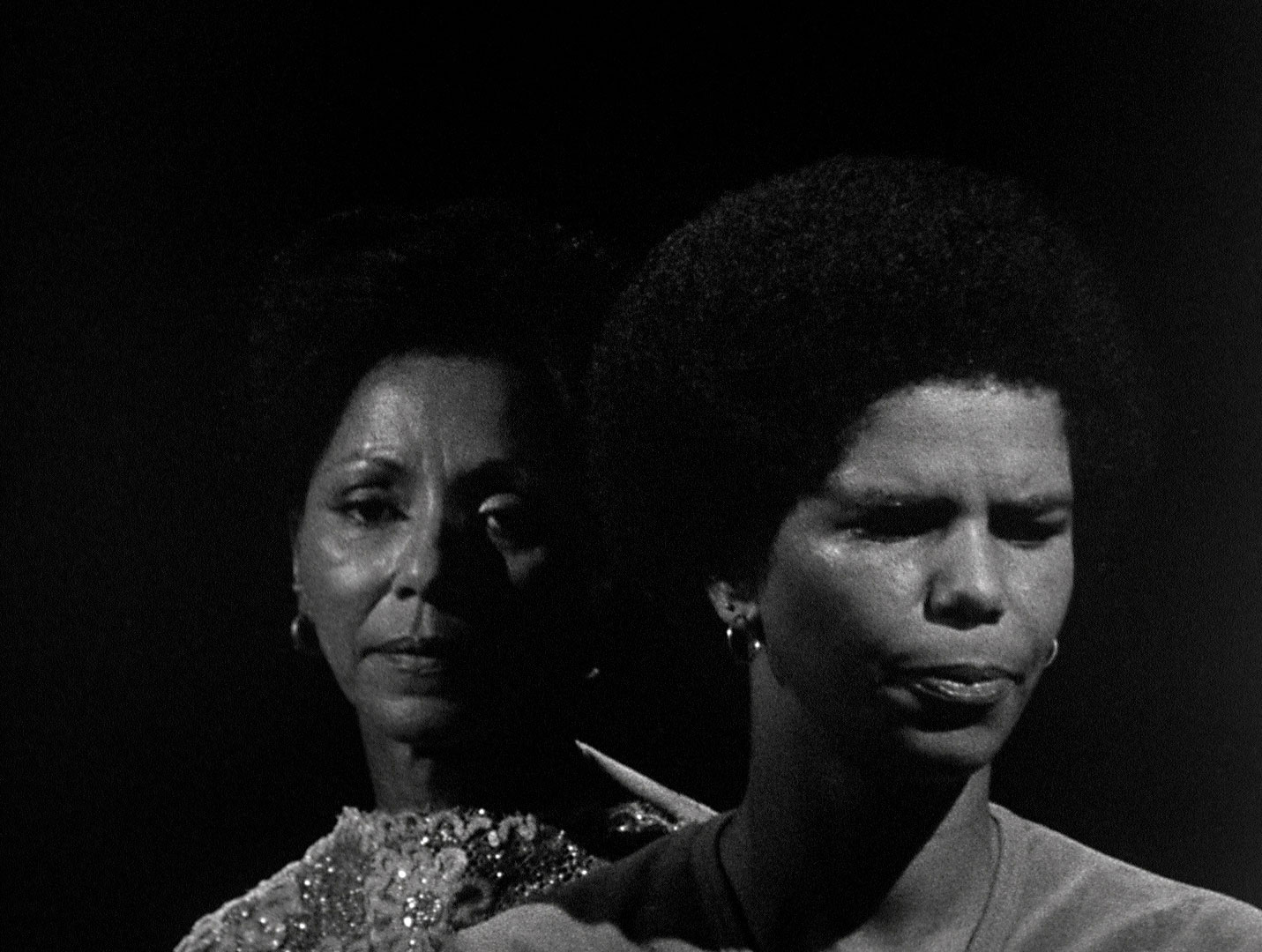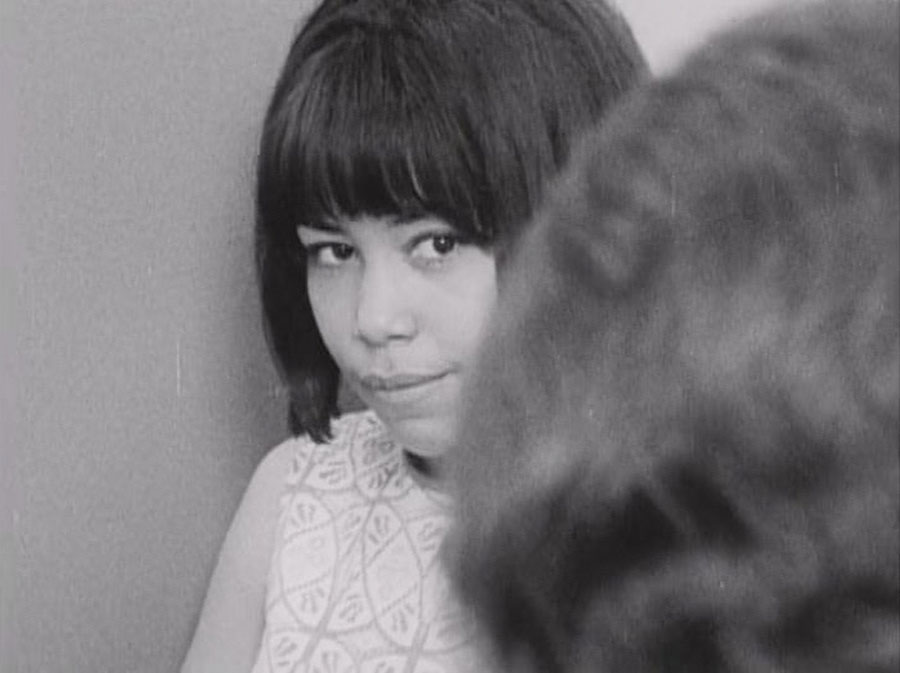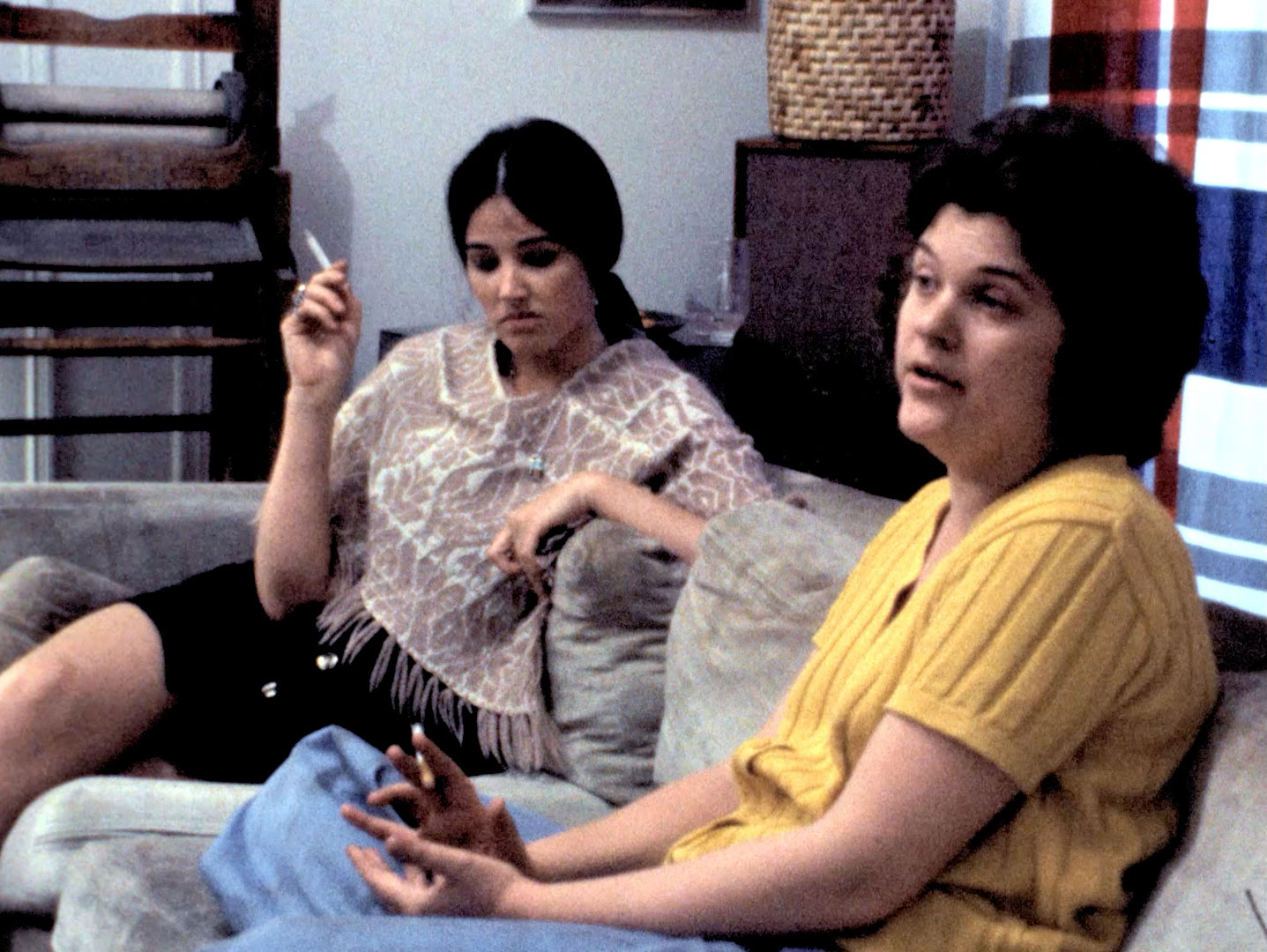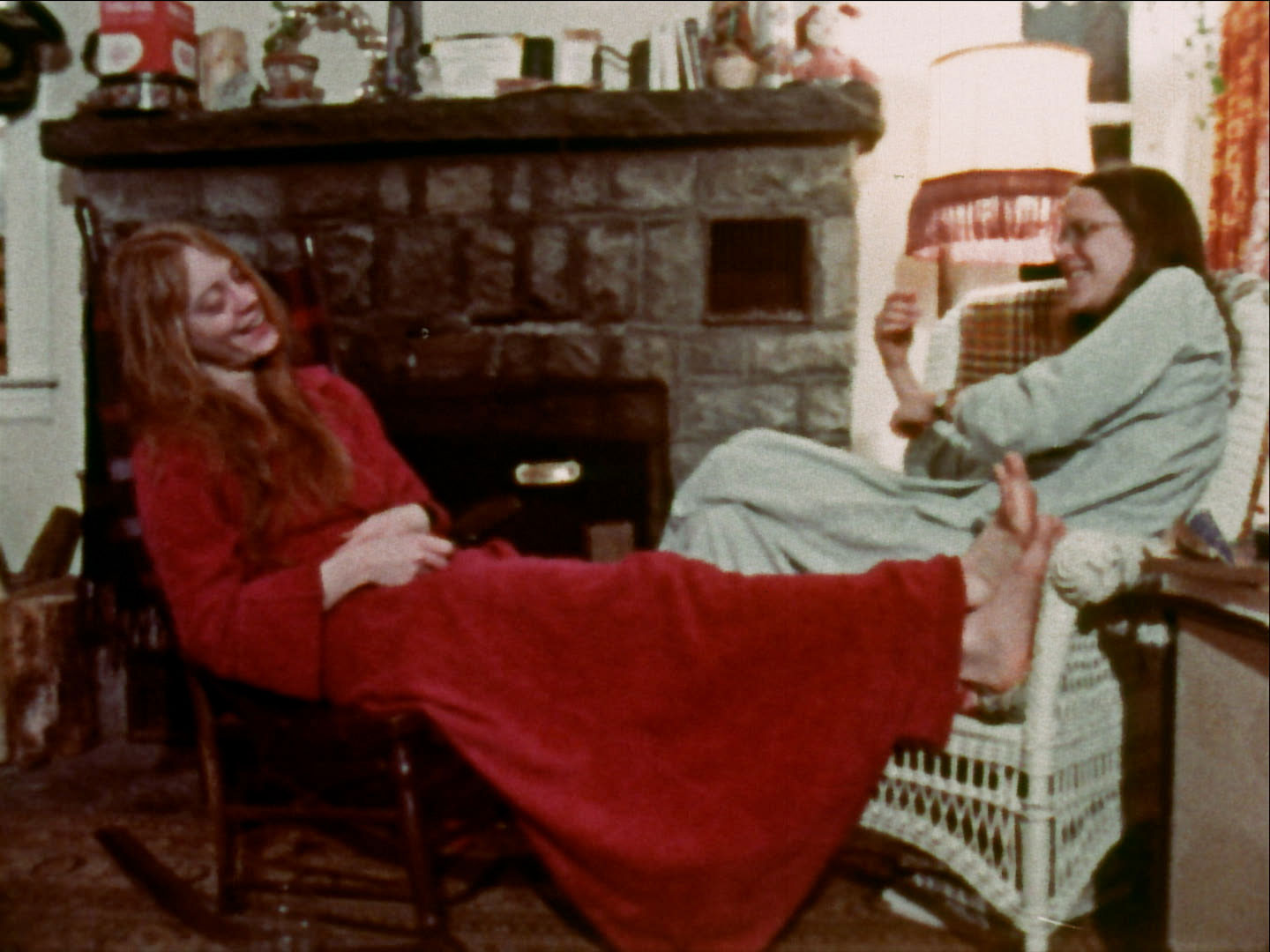In June 1972, on a corner of Greenwich Village just off 13th Street, the now-vanished Fifth Avenue Cinema was briefly home to a historic showcase: the First International Festival of Women’s Films. Across the hundred and twenty films that screened, a critic for Women & Film noticed a trend: a fount of documentaries that highlighted the vexing banalities of women’s lives, drawn from the candor and fury of their everyday. If, as scholar and socialist feminist Sheila Rowbotham wrote in Woman’s Consciousness, Man’s World, “all revolutionary movements create their own ways of seeing,” then these early feminist documentaries also created a way of speaking. Grounded in second-wave feminism’s axiomatic “the personal is political,” many of these films offered variations on a then-radical form: women telling their stories to a camera, their voices no corrective afterthought, but the creative principle itself.
An exceptional series currently streaming on the Criterion Channel, “Tell Me: Women Filmmakers, Women’s Stories,” is an occasion to reconsider the ranging paths of feminist media production stoked by women’s liberation in the early 1970s. Originally curated by Nellie Killian for a Metrograph run in 2018, the series spans four decades of documentaries made by women, many of which were distributed by feminist and leftist collectives during the 1970s and 1980s.
The films in “Tell Me” vary not only in subject—from abortion activism to carceral violence; from meditations on domesticity to queer fantasia—but also in how they experiment with form. Many fuse the observational practices of cinéma vérité with the more active mode of interviewing; some use numinous close-ups in sequences of visual ambiguity to supplement more conventional exposition. The voluble speakers in these frames elicit a sense of the audience as a kind of privileged witness: we are lucky enough to see and hear these women’s stories, but, in our witnessing, we also corroborate the value of their telling.
It’s curious to revisit the many incarnations of “the personal is political” in this moment, when individual experience is easily co-opted into an atomizing song of the self to the tune of empowerment and improvement. But the early films in “Tell Me” remind us of the dictum’s radical past as a tool used by consciousness-raising groups in the 1970s to connect a naming of private pains to the possibility of collective liberation. Even as it platformed the concerns of white women, consciousness-raising became vital to black feminist organizations like the Combahee River Collective, whose centring of race and class expanded the often-parochial “personal.”
Most of the older examples were distributed by two independent filmmaking collectives that grew directly out of movement politics, both of which still exist today: New Day Films and Third World Newsreel. Discouraged by an extortionate distribution contract, Julia Reichert and Jim Klein, directors of one of the earliest films in the series, Growing Up Female (1971), founded New Day in 1971 together with two other featured directors, Amalie R. Rothschild and Liane Brandon.
Growing Up Female is the most didactic in the series, using an expository voiceover to relate the bare facts of patriarchal oppression, and to organize its talking heads by theme. Reichert has spoken of the film as a momentum-builder for the movement—in 1971–1972, it was being booked thirty to forty times a month: “You show this to a group of high school kids, you show this to a group of women, it automatically and immediately made people think differently about themselves.”
In the late 1960s, political documentary filmmaking had been spearheaded by New York’s Newsreel Collective, formed in 1967 as an alternative, antiwar media service. In 1973, on the grounds that its mainly white, male, and middle-class members had dominated productions—especially those about struggling communities of color—Newsreel was taken over by its caucus of Black, Latinx, and Asian members, renamed Third World Newsreel and headed, for the first time, by two women: Christine Choy and Susan Robeson (granddaughter of revolutionary artist and activist Paul Robeson). The year before, Choy and Robeson had directed Third World Newsreel’s first production, Teach Our Children, using personal interviews and news footage to scrutinize the harrowing conditions behind the Attica prison rebellion of 1971.
For these collectives, documentaries were a pedagogical tool that could supplement the other strategies of movement politics by anchoring their ideas in personal experience. Amalie R. Rothschild’s It Happens to Us (1972), an early New Day film, was sponsored by the Medical Committee for Human Rights in the years before Roe v. Wade, and was used to assist abortion rights activism in Georgia, Tennessee, and Kentucky. Rothschild intercut interviews of American women of various ages and backgrounds about their abortion experiences with statistics and detailed information about available procedures. Many interviewees share stories from their distant youth, vestigial distress still apparent in their voices; others seem buoyed by the presence of friends or partners.
Advertisement
Another New Day film, Chris and Bernie (Bonnie Friedman and Deborah Shaffer, 1975), also affirms the possibility of communion in mutual disclosure. The film follows two divorced single mothers in New York, each with a child aged six or younger, as they explore alternative ways of co-parenting together. Alongside direct-to-camera confessions from both women, often sharing the frame, there are long scenes of the motley four at breakfast, children being dressed for school or gently put to bed; the two young mothers sitting hearthside and laughing, legs across each other in sororal intimacy.
That sense of co-conspiratorial warmth in Chris and Bernie emanates from its focus on home life and the rituals that unfold in its proximity. There is another kind of intimacy on display in a film like Third World Newsreel’s Inside Women Inside (Christine Choy and Cynthia Maurizio, 1978), shot at the Correctional Institute for Women at Riker’s Island, the North Carolina Correctional Center for Women, and Elmhurst General Hospital—places where private space is a fantasy. Inside Women Inside is the earliest film in the series directed by women of color, and in a thematic echo of Choy and Robeson’s Teach Our Children, gathers interviews with prisoners and institutional staff to expose the abuse of incarcerated women. In a rousing counter to the prison system’s dehumanization through civic erasure, Choy and Maurizio affirm their interviewees’ individual presences, rooting a systemic critique in accounts of deeply personal suffering. These women recall cases of gross medical negligence and labor exploitation tentatively before the camera; at other times, their incensed voices play as the camera pans over barred faces and cell walls, scrawled with prayers and calendar markings that index stolen lifetimes.
Like many other films in the series, Inside Women Inside grew out of explicit political goals; some, like Camille Billops and James Hatch’s Suzanne Suzanne (1982), also distributed by Third World Newsreel, pulled their politics from the personal lives of their makers. Billops initially set out to document her niece Suzanne’s recovery from heroin addiction, but the film became a polyphonic account of domestic violence in a middle-class black household. Between footage and photographs exhumed from family archives, Billops cuts interviews with Suzanne, her mother, and occasionally other relatives, as they plumb the violence perpetrated by Suzanne’s now-deceased father, Brownie. He emerges as a patchwork figure from an oral history of his clandestine evils, protected by the norms of respectability in a classist, racist patriarchy.
Toward the end of the film, there is a shot that departs from most of the vérité realism that precedes it: Suzanne and her mother face the camera as they talk about Brownie’s beatings, artificially lit and framed against a dark backdrop like two cut-outs on separate planes, collaged together in post-production. But at the end of the scene, it’s clear that they’ve been next to each other this whole time; they turn and embrace in tears, bridging the distance. We see the catharsis of disclosure for women who can finally name their suffering, and the way documentary can both conspire with and challenge the constructions of identity and memory.
In her 1986 essay “Thoughts on Women’s Cinema: Eating Words, Voicing Struggles,” choreographer and filmmaker Yvonne Rainer (whose 1990 feature, Privilege, also screens in the series) touches on the challenges of dealing with multiple voices in women’s filmmaking. Rainer offers a long list of “useless oppositions,” including: “Work in which the voices carry a unified truth versus work in which truth must be wrested from conflicting or conflicted voices.” While Rainer refers to the clamor that might rise within a single film, she also compels us to consider those voices that surge across the many different avenues of women’s filmmaking.
I think of the “Tell Me” series as a whole, calling on the audience to grapple with conflicting voices, wrest truths from those made discordant by time. While the second wave’s calls to solidarity have been well-criticized for glossing over difference in race, class, and sex, many later films in the series work as critical addendums to these earlier voices. There is the rarely-seen everyday of three Latinx trans women in The Salt Mines (Carlos Aparicio and Susana Aikin, 1990), as they improvise their lodgings and livings in a West Side waste facility; then there is private utopia of Leilah Weinraub’s Shakedown (2018), which maps the halcyon past of an underground black lesbian strip club in early 2000s LA. In some of these films, personal stories crystallize into broader political indictments; in others, they only reveal greater complexities. The series asks us, as witnesses or intimate addressees, eager students or galvanized activists: What is it that we hope our listening to these women will yield?
Advertisement
“Tell Me: Women Filmmakers, Women’s Stories” is now streaming on Criterion Channel.







